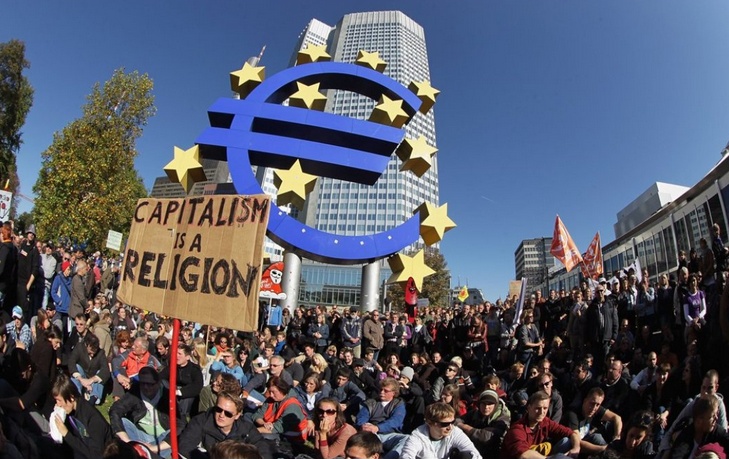“One can behold in capitalism a religion, that is to say, capitalism essentially serves to satisfy the same worries, anguish, and disquiet formerly answered by so-called religion.”
— Walter Benjamin
“This yellow slave will knit and break religions”
— William Shakespeare, “Timon of Athens”
David R. Loy, a professor of international studies at Bunkyo University in Japan and a Zen Buddhist teacher, offers us a compelling viewpoint on why we ought to understand our present economic system as the West’s dominant religion. In A Buddhist History of the West (2002), Loy argues that, although religion is “notoriously difficult to define,” if we “adopt a functionalist view and understand religion as what grounds us by teaching us what this world is, and what our role in the world is, then it becomes evident that traditional religions are fulfilling this role less and less, because that function is being supplanted by other belief systems and value systems.”
This is a shocking statement for those of conventional religious sensibility. Certainly the monotheistic faith-traditions have not just disappeared into the thin air of modernity. One could make a solid case that Islamic cultures still contain strong currents of resistance to Western consumer individualism (perceived as decadent and nihilistic). But in the West, Christianity in particular, has lost much of its power to resist the new god that has (and is) conquering the old ones (just like Christianity did in its displacement of Roman deities). Although the monotheistic religions contain many different streams and tendencies (including ascetic and contemplative traditions), these minority anti-materialist traditions have not been able to prevent the market from becoming our “first truly world religion, binding all corners of the globe into a worldview and set of values whose religious role we overlook only because we insist on seeing them as secular” (Loy). Economics is the new theology of this global religion of the market; consumerism its highest good; its language of hedge funds and derivatives as incomprehensibly esoteric as Christian teachings about the Trinity. “Accumulate, accumulate! This is Moses and the prophets! Marx cried out in the first volume of Capital.

